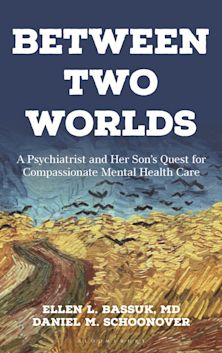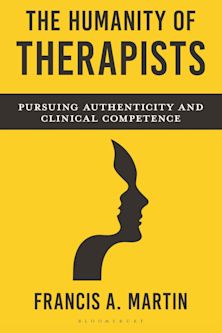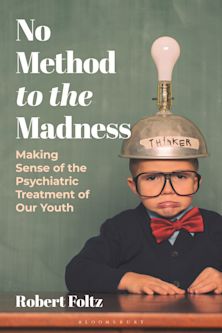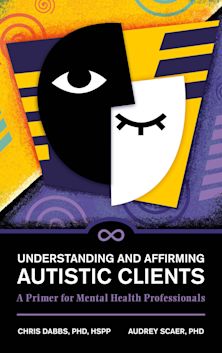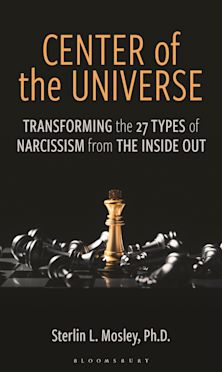- Home
- ACADEMIC
- Psychology
- Psychopathology & Clinical Psychology
- The Wandering Mind
The Wandering Mind
Understanding Dissociation from Daydreams to Disorders
The Wandering Mind
Understanding Dissociation from Daydreams to Disorders
You must sign in to add this item to your wishlist. Please sign in or create an account
Description
Have you ever had a daydream? If so, you’ve had a dissociative experience. The same is true if you’ve had an out-of-body moment or thought you were somewhere else as you drifted off to sleep. These are seemingly harmless and temporary dissociations. But further down the spectrum of such experiences, you find people actually traveling to a strange city and suddenly not remembering how they got there. You also find people with multiple personalities and other disordered thinking.
In The Wandering Mind, Dr. John Biever and co-author Maryann Karinch use the stories of people all along the spectrum of dissociative conditions—from those who are “perfectly normal” to those diagnosed with Dissociative Identity Disorder—to expose the natures and functions of dissociation. Their lives and stories serve as a way of exploring chronic dissociation and the trek back to good mental health.
The authors look closely at what signs and symptoms indicate normal, everyday dissociation, and those that indicate a more serious problem. While daydreamers may not meet the criteria for diagnosis, trauma victims who relive their nightmares in real time may require both diagnosis and treatment. The authors also delve into the phenomenon of deliberate dissociation, such as Buddhist monks in meditation. And they take a close look at the process of diagnosing a dissociative disorder as well as factors that put patients on the road to reintegration and recovery.
Table of Contents
Acknowledgments
Introduction
1: Something for (Almost) Everyone
2: Entering the Land of the Lost
3: What Causes the Need to Dissociate?
4: Eccentric versus Sick: Spotting the Difference
5: The Uphill Trek to a Diagnosis
6: Treating the Symptoms: Everyone’s Nightmare
7: Treatment That Heals
8: Coming Back Home
Epilogue
Appendix
Notes
Glossary
Bibliography
Index
About the Authors
Product details
| Published | Aug 09 2012 |
|---|---|
| Format | Ebook (PDF) |
| Edition | 1st |
| Extent | 1 |
| ISBN | 9798216247364 |
| Imprint | Rowman & Littlefield Publishers |
| Publisher | Bloomsbury Publishing |
About the contributors
Reviews
-
The Wandering Mind seamlessly weaves clinical narrative and biomedical science in a way that makes dissociative conditions accessible to both the lay reader and seasoned practitioner. This work is both timely and valuable in our attempts to understand a growing psychiatric population struggling with the dissociative scars of trauma and war.
Amir A. Afkhami, M.D., Ph.D., assistant professor, Department of Psychiatry and Behavioral Sciences, Global Health Division, School of Public Health and Health Services, George Washington University
-
Biever and Karinch, in their marvelous book, The Wandering Mind, demonstrate time and again that they have been engaged with individuals in dissociative states. And they write in a manner that enables us to experience this engagement and attain a deeper understanding of dissociation. They help us to understand the person who is experiencing a disorder of dissociation, not a diagnosis. The wisdom of this book may equally be applied to individuals with all sorts of disorders.
Dan Hughes, Ph.D., clinical psychologist and author of Attachment-Focused Family Therapy Workbook and Brain-Based Parenting, among other works
-
Biever, a psychiatrist in private practice, and Karanich, a science writer, cover the dissociation waterfront. The book is written through the lens of Biever, who expertly describes daydreaming, fantasy-prone personalities, and charismatic leaders. He differentiates dissociate identity disorder (DID) from dissociative fugue, dissociative amnesia, depersonalization disorders, and false memories, using examples from the literature as well as his own case studies. Karanich is probably responsible for the reader-friendly tone of the book, with its clear description and sympathetic presentation of dissociative phenomena. This is especially evident in the discussion of a Dr. Saroj Parida, whose DID ended a brilliant career when an alter personality committed insurance fraud that led to his incarceration. This is only one of the strands in a rich tapestry. The book includes an excellent glossary. This book can serve as an introduction to the field for nonclinicians; for clinicians, it provides an opportunity to expand and deepen understanding of this complex human capacity. Summing Up: Highly recommended. All readers.
Choice Reviews











